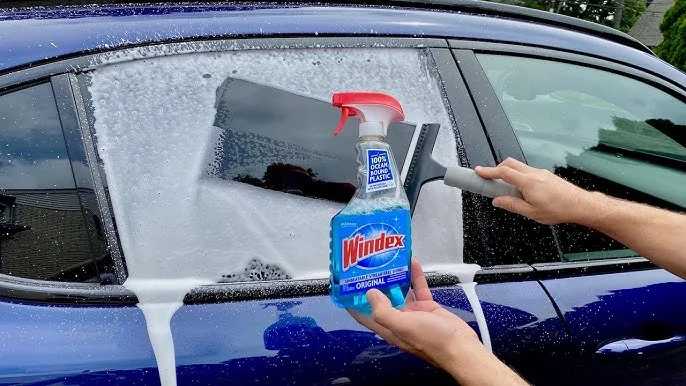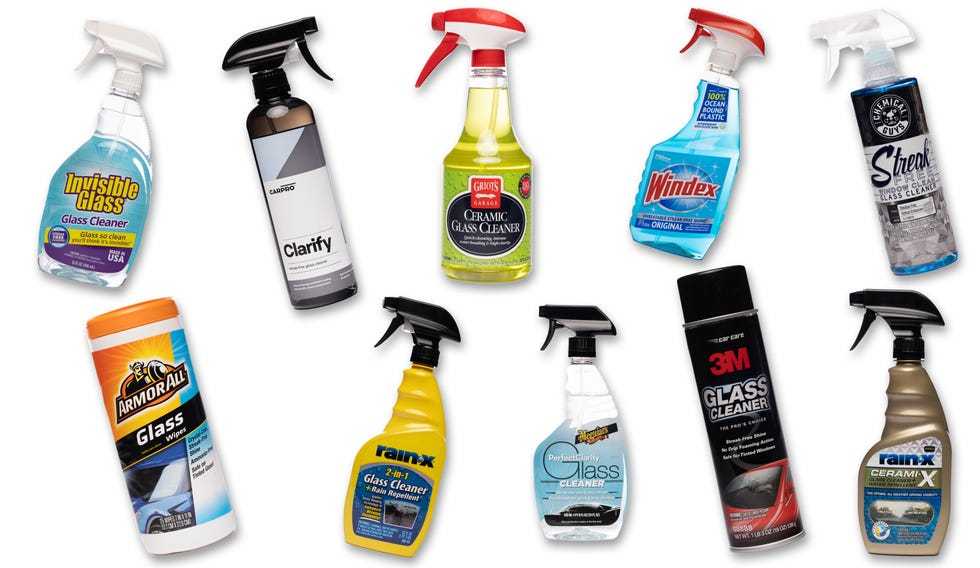Yes, ceramic coating can be applied to glass, offering enhanced protection and clarity. Many car enthusiasts and homeowners wonder if this innovative coating works on glass surfaces, and the good news is it does. Applying ceramic coating to glass can improve its hydrophobic properties, making it resistant to water spots, dirt, and grime, while also increasing its durability. This application creates a sleek, glossy finish that enhances visibility and makes cleaning easier. If you’re considering whether ceramic coating is suitable for your glass surfaces—be it a car windshield, home windows, or glass doors—it’s definitely worth exploring. In this article, we’ll delve into how ceramic coatings work on glass, their benefits, and what you need to know before applying them to your glass surfaces.
Have you ever wished your glass surfaces could stay cleaner longer and resist the elements better? Ceramic coatings can be a game-changer for glass, providing a protective shield that enhances durability and appearance. Keep reading to discover how this technology can transform your glass surfaces and whether it’s a good fit for your needs.
Can Ceramic Coating Be Applied to Glass?
Understanding Ceramic Coating and Its Common Uses
Ceramic coating is a liquid polymer that bonds with surfaces to create a protective layer. It is widely used on cars, boats, and even home fixtures to protect against dirt, scratches, and UV rays. Its popularity grows because it makes surfaces easier to clean and maintain.
Why People Wonder if Ceramic Coating Can Be Applied to Glass
Many ask if ceramic coating works on glass because glass surfaces are different from painted or metallic surfaces. Some believe that coating glass could improve its clarity, reduce glare, or add a protective layer. This curiosity leads to exploring whether ceramic coatings can truly stick and work effectively on glass.
Can Ceramic Coating Be Applied to Glass?
Yes, ceramic coating can be applied to glass. In fact, many coatings are designed specifically for glass surfaces. These coatings are made to adhere well to glass and provide benefits like water repellency and easier cleaning.
Types of Ceramic Coatings Suitable for Glass
There are specialized ceramic coatings formulated for glass surfaces. They usually fall into two categories:
- Hydrophobic coatings: These cause water to bead and roll off quickly, keeping glass clear and dry.
- Hard coatings: These add scratch resistance and protect against minor chips or abrasions.
Some coatings are universal and can be used on multiple surfaces, but it’s best to choose those specifically labeled for glass.
How Does Ceramic Coating Bond with Glass?
Ceramic coatings bond with glass through a chemical process called covalent bonding. This creates a strong, durable layer that adheres tightly to the surface. Proper surface preparation is key to ensuring the coating bonds well and lasts longer.
Preparing Glass for Coating
Preparation involves cleaning the glass thoroughly to remove dirt, oil, or residues. Using a glass cleaner and an alcohol-based wipe helps remove any contaminants that could interfere with bonding. Sometimes, light polishing is recommended to smooth out minor imperfections.
Applying the Ceramic Coating to Glass
Apply the coating in a clean, dust-free environment. Use a soft applicator or microfiber cloth to spread the liquid evenly over the glass surface. Follow the manufacturer’s instructions regarding curing time and layers for optimal protection.
Benefits of Applying Ceramic Coating on Glass
Applying ceramic coating to glass offers multiple advantages:
- Water Repellency: Water droplets roll off easily, reducing streaks and water spots.
- Improved Visibility: Coated windows and windshields stay clearer in rain or snow.
- Ease of Cleaning: Dirt and grime find it harder to stick, making cleaning simpler.
- UV Protection: The coating shields the glass from harmful UV rays, preventing discoloration or degradation.
Applications of Ceramic Coated Glass
You can find ceramic coated glass in many areas:
- Automotive Windshields and Windows: Enhances visibility and reduces cleaning frequency.
- Home Glass Doors and Windows: Maintains clarity and reduces water spots.
- Mirror Surfaces: Protects against moisture and dirt buildup.
- Glass Showers and Facades: Easier to maintain and keeps surfaces looking new longer.
Limitations and Considerations
While ceramic coatings provide many benefits, some factors affect their performance on glass:
Durability and Wear
Coatings might degrade over time, especially if exposed to harsh weather or abrasive cleaning. Regular maintenance and reapplication can help maintain effectiveness.
Proper Application is Crucial
Incorrect application can lead to uneven coating or poor adhesion. Always follow manufacturer instructions or consult professionals for best results.
Compatibility with Existing Coatings
If the glass already has a coating or film, ensure compatibility. Some coatings may not bond well with existing layers and could cause damage or reduce effectiveness.
Choosing the Right Ceramic Coating for Glass
Select a product specifically designed for glass or labeled as suitable for multiple surfaces. Reading reviews and consulting with professionals can help find the best coating for your needs.
Factors to Consider When Choosing a Ceramic Coating
- Ease of application: User-friendly formulas save time and effort.
- Durability: Longer-lasting coatings provide better protection.
- Water repellency: Strong hydrophobic properties improve water runoff.
- Price: Budget-friendly options still offer good performance.
Tips for Applying Ceramic Coating on Glass
Applying ceramic coating effectively involves:
- Cleaning thoroughly before application to remove all residues.
- Applying in a dust-free, shaded environment.
- Using proper applicators like microfiber cloths or foam pads.
- Following curing instructions precisely for best results.
- Applying multiple thin layers instead of one thick layer to ensure even coverage.
Maintenance and Care for Coated Glass
Maintaining ceramic coated glass involves gentle cleaning. Avoid abrasive cleaners or rough scrubbing, which can damage the coating. Regular washing with mild soap and water keeps the coating in top condition.
Future Trends in Ceramic Coating for Glass
Innovations continue to improve ceramic coatings, making them more durable and easier to apply. New formulations aim to enhance water repellency, UV resistance, and scratch protection even further.
Summary
Applying ceramic coating to glass is both feasible and beneficial. It provides water repellency, protection against scratches, and easier cleaning. With proper surface preparation and correct application, ceramic coatings can significantly improve the performance and longevity of glass surfaces.
Additional Related Topics
- Types of Ceramic Coatings for Different Surfaces
- Comparing Ceramic Coating to Other Protective Films
- DIY vs. Professional Ceramic Coating Application
- Long-term Maintenance Tips for Coated Glass
Can You Apply Ceramic Coating on Glass
Frequently Asked Questions
Is it possible to apply ceramic coating directly on glass surfaces?
Yes, ceramic coating can be applied directly to glass surfaces. It forms a protective, transparent layer that enhances the durability and resistance of the glass against scratches, UV rays, and environmental contaminants. Proper preparation of the glass surface is essential to ensure maximum adhesion and effectiveness of the coating.
What are the benefits of applying ceramic coating to glass?
Applying ceramic coating to glass improves its resistance to dirt, water spots, and staining. It creates a hydrophobic effect that causes water to bead up and roll off, keeping the glass cleaner for longer periods. Additionally, it provides a scratch-resistant layer that preserves the clarity and appearance of the glass over time.
Are there any specific considerations when coating automotive glass?
When coating automotive glass, ensure the surface is thoroughly cleaned and free of any debris, oils, or residues. Use a coating designed specifically for glass to prevent any adverse reactions. Following the manufacturer’s instructions carefully will help achieve smooth application and long-lasting protection without compromising visibility or safety features like sensors or antennas.
Can ceramic coating be used on commercial or household glass fixtures?
Yes, ceramic coatings work well on various glass fixtures such as windows, doors, mirrors, and shower enclosures. Applying a coating helps reduce maintenance efforts, resists staining, and enhances appearance. Make sure to select a compatible product designed for household applications to ensure optimal results and longevity.
How long does the ceramic coating typically last on glass surfaces?
The longevity of ceramic coating on glass depends on factors like application quality, exposure to elements, and maintenance routines. Generally, a well-applied coating can last between one to three years. Regular cleaning with appropriate products and avoiding abrasive materials will help extend its effectiveness.
Final Thoughts
Ceramic coating can be applied to glass, providing a protective layer that enhances durability and resistance to scratches and stains. Proper application ensures the coating adheres well and maintains clarity.
While it offers significant benefits, application should be handled carefully to avoid imperfections. Always consult professionals for best results to ensure long-lasting protection.
Can ceramic coating be applied to glass? Yes, it can, offering an effective solution for maintaining glass surfaces in excellent condition.



